Elections and electoral systems
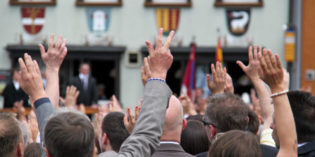
Why don’t immigrants vote more?
There are relatively few cases where non-citizen immigrants can vote in municipal elections, but where they can participation tends to be low. Didier Ruedin assesses the case of Geneva, where he finds that, even accounting for social origin, engagement, civic integration and socialisation, there is a gap in participation that needs further explanation.
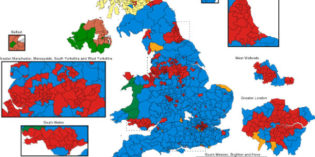
General election polling goes geographical: the accuracy and value of constituency-level estimates
The 2017 general election saw a largely unremarked geographical extension to opinion polling, with three analysts publishing estimates of which party was likely to win in each of the country’s constituencies. Ron Johnston, Kelvyn Jones, David Manley, Charles Pattie, Todd Hartman, and David Rossiter have analysed their accuracy and considered the implications of that development for the conduct of future elections.
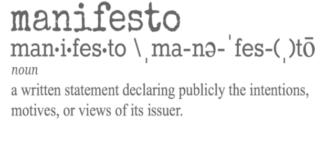
The many roles of manifestos at the subnational level in British general elections
Alistair Clark and Lynn Bennie assess the roles of national party manifestos across Britain, Scotland and Wales in UK-wide general elections, and illustrate the multiple functions these documents perform in complex multilevel systems of government.

Why voters in emerging democracies are more reliable than we thought
Elections in new democracies such as those in Central and Eastern Europe are often expected to be volatile affairs, with sizeable shifts in support between parties from one election to another. But is this really a fair characterisation of how citizens of these states choose to use their vote? Presenting findings from a new study, Daniel Bochsler and Miriam Hänni write that the key to understanding voting behaviour in new democracies is to recognise the importance of economic performance. Citizens in younger democracies are more likely to relate the legitimacy of a government to the country’s economic performance, with this effect reducing as a democracy matures.
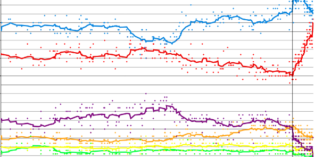
The limitations of opinion polls – and why this matters for political decision making
Recent research by Jennings and Wlezien has demonstrated that political polling has remained as accurate as ever in terms of margin of error in the week prior to an election. However, polls are usually publicly judged on whether they call the result correctly. In this, writes Sean Swan, they have been less accurate over recent UK elections. This has particular consequences for how and when political leaders make decisions about discretionary elections, and so it matters that we understand polls and their limitations correctly.
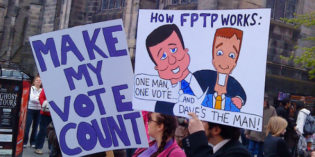
Local elections: diverse voices are being drowned out by the undemocratic voting system in England and Wales
England’s local councillors are elected under a First Past the Post electoral system with multi-member wards. As a result, Chris Terry argues, the results will be strongly non-proportional and so the system needs to be reformed.
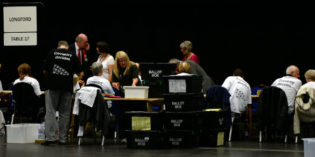
England’s local elections: how councillor numbers are being reduced by stealth
Local elections are being held across England on 3 May, but finding out where and for which seats is not always straightforward. Of more concern, writes Chris Game, is that the number of local councillors is gradually being reduced, in a process that lacks transparency, proper scrutiny and a clear, democratic rationale.

Are discretionary referendums on the EU becoming ‘politically obligatory?’
Do governments call referendums on EU matters because contextual circumstances make them ‘politically obligatory’ or because ruling politicians believe they are the ‘appropriate’ decision-making mechanism? Aude Bicquelet-Lock and Helen Addison argue that, contrary to these suggested reasons, politicians have the freedom to choose whether and when to use referendums strategically to achieve their domestic and European policy objectives.

Will the ‘youthquake’ shake up the 2018 local elections?
Youth engagement was heralded by some as a key factor in the 2017 UK general election result but what impact could it have in the 2018 local elections? Erica Belcher argues that this enthusiasm may not necessarily translate to the local level, but it’s more important than ever for young people to engage in local politics.
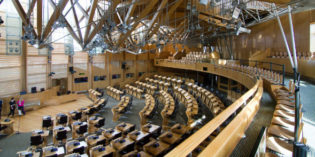
On the ballot: how electoral procedures shape the work of Members of the Scottish Parliament
The electoral system by which members of parliament are elected shapes how legislators perceive their roles. Furthermore, write David C.W. Parker and Caitlyn M. Richter, in the case of the Scottish Parliament, both the electoral system and the change implemented prior to the 2007 election, whereby candidate names were removed from party-list ballots, have an impact on how Members of the Scottish Parliament spend their time and resources.


 Democratic Audit's core funding is provided by the Joseph Rowntree Charitable Trust. Additional funding is provided by the London School of Economics.
Democratic Audit's core funding is provided by the Joseph Rowntree Charitable Trust. Additional funding is provided by the London School of Economics.